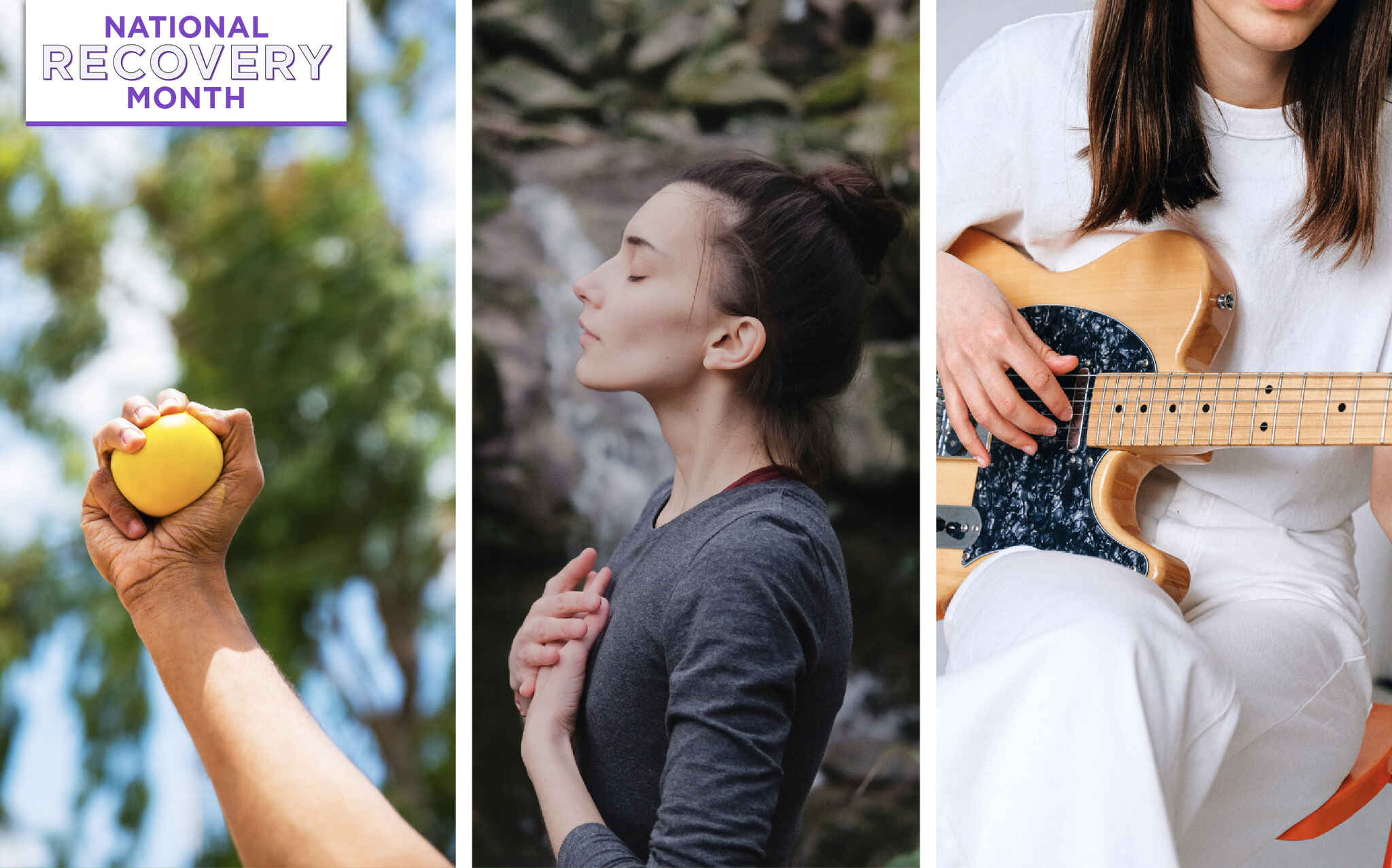“National Recovery Month started in 1989 and is a national observance held every September to promote and support new evidence-based treatment and recovery practices, the nation’s strong and proud recovery community, and the dedication of service providers and communities who make recovery in all its forms possible. This year, to address the nation’s growing crisis of substance misuse and overdose deaths, SAMHSA is launching initiatives that promote and support evidence-based treatment and recovery practices, the emergence of a strong and proud recovery community, and the dedication of service providers and community members across the nation who make recovery possible”. -SAMHSA
Recovery is a challenging journey for you and your loved ones; therefore, it is important to have a tailored “recovery toolkit” to help you navigate this journey. A recovery or sobriety toolkit is a collection of tools and resources that you can use to manage triggers and cravings, build healthy habits, strengthen your coping skills, and avoid unhealthy patterns.
When individuals in recovery stop using drugs and alcohol, they may use other unhealthy coping behaviors, such as avoidance and denial, to deal with unsettling emotions and stressors. Recovery is a complicated process, and having tools to help you work through stressors, emotions, disappointments, setbacks, and frustrations can help you prevent relapse and manage challenges with maturity and grace while building your self-confidence in your recovery journey.
What Do You Keep In Your Recovery Toolkit?
Your recovery toolkit can include tangible items such as stress balls and essential oils, resources such as self-help books, activities such as exercise and cooking, and social tools such as a support system and recovery meetings.
Hobbies/activities: What are your favorite activities or hobbies that bring you joy, make you feel good, and boost your self-confidence? Healthy hobbies and activities during recovery can include exercise, cooking, gardening, crafting, and traveling. Try to make a routine out of these hobbies to experience joy daily. This may mean running a few days a week, practicing yoga daily, riding your bike, planning road trips, cooking a new recipe once a week, and spending time every day in your garden. You want healthy and uplifting hobbies to become a normal part of your routine, so you are not only relying on them when you are stressed out or struggling with cravings.
Resources: Recovery resources are concrete, information-rich guides you can use when you have questions or need advice. Recovery resources include recovery blogs, self-help books, recovery workbooks, journal prompts, online addiction forums, and addiction success stories. It’s a good idea to have your favorite recovery blogs or social media accounts bookmarked a couple of self-help books you enjoy, and a few recovery journal prompts to help guide you through a challenging recovery process.
Coping strategies: These are quick ways to reduce your stress levels when experiencing triggering thoughts or having an off day. Coping strategies in your recovery toolkit can include positive affirmations, breathing exercises, meditation, and exercise. Breathing exercises can consist of the following:
- Diaphragmatic or deep breathing expands the stomach and engages the diaphragm.
- 4-7-8 breathing: involves inhaling for 4 seconds, holding the breath for 7 seconds, and exhaling for 8 seconds.
Exercise can be a coping strategy in times of need and can be used as a hobby to help prevent negative emotions and triggers. Exercise can induce going to the gym, spending time on your bike or in running shoes outside, going to a yoga class, swimming in your pool, doing workouts in your living room, joining a dance class, or any other ways you can move your body that makes you feel good.
Mantras and positive affirmations: Positive self-talk is a crucial step to help build your self-confidence. Our thoughts and words about ourselves are important, and often, we tear ourselves down with negative thoughts and words. Affirmations are positive statements that make you feel good. They become mantras when they are repeated over and over again. These statements offer comfort and eventually become beliefs. There are plenty of positive affirmation cards you can purchase or free tools online that can help you start.
Social support: Social support is one of the most important tools in your recovery toolkit. Social support includes therapy, 12-step meetings, online recovery groups, connecting with close friends and family, and having a recovery mentor. Engaging in social support should be a routine that can be preventative but can also be used when you are having a difficult day. You may attend therapy once a week to help you learn healthy coping skills and have a solid social support system you can rely on when experiencing a bad day.
Recovery is about building a community that can help support you along your journey, and this community is crucial to have in your recovery toolkit.
Emergency toolkit items: These are tangible items that you can use when you are feeling triggered, overwhelmed, sad, angry, or engaged in the stages of relapse. These include the following:
- Running shoes
- Stress balls
- Narcan
- Make-up or lotion
- Essential oils
- Favorite snacks or candy
- Journal and pen
- Positive quotes
- Earphones for music
- List of recovery meetings and times
Seeking help
Your recovery toolkit is one essential part of your recovery. Still, sometimes, you may need to contact a treatment team, especially if you are experiencing relapse or showing warning signs associated with relapse. AKUA Mind and Body is a full-service treatment program offering a wide range of “east meets west” treatment modalities for many populations struggling with mental health and substance use disorders. AKUA makes your recovery a priority. AKUA Mind and Body treats co-occurring disorders and works diligently with each client and their family to ensure that treatment is specifically tailored to their needs and not just their disorder.
AKUA Mind and Body offers detoxification and intensive and outpatient treatment programs. AKUA Mind and Body uses a blend of holistic approaches combined with evidence-based treatment to help individuals who have been affected by substance use and mental health disorders recognize their underlying triggers and develop healthy coping skills. Regardless of where you are in your recovery process, AKUA Mind and Body can help.




